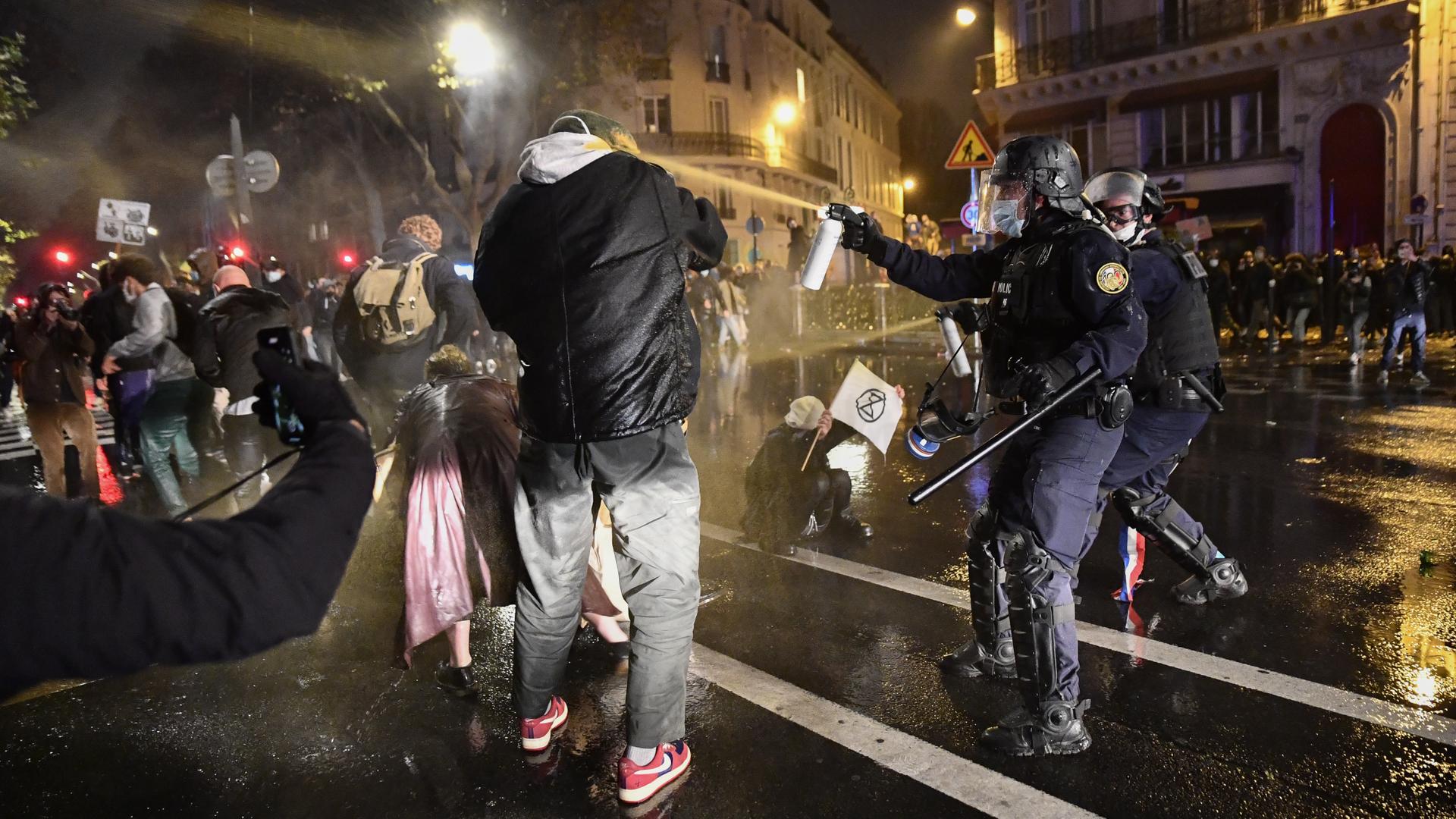French police has arrested five journalists during protests against the global security law that human rights groups slam for risking “fundamental human rights”, including press freedoms.
The new bill, if passed, would permit the imprisonment of people who publish images of police officers during their interventions to protests with “the intent to cause them harm”.
@EmmanuelMacron has been vocal recently about France’s devotion to its fundamental principle of freedom of expression, but is he comfortable with these images of journalists being arrested at a protest in Paris? Protest was against new security law that has rung alarm bells at UN https://t.co/quNxUlJbXa
— Ben McPartland (@McPBen) November 18, 2020
Near the hours when the draft law began to be discussed in the National Assembly, thousands of people gathered on the Saint-Germain boulevard near the parliament building and protested the bill.
French police used tear gas and water cannons to disperse the crowd that also included yellow vest protesters.
[1/2] Widespread protests in #Paris against the “Global Security” law, which forbids publishing any videos or pictures of security forces on duty on media. #StopLoiSecuriteGlobale#LoiSecuriteGlobale pic.twitter.com/3oR1T3KdpT
— Euro-Med Monitor (@EuroMedHR) November 18, 2020
‘Undermining fundamental rights’
The bill’s most controversial measure would make it a new criminal offence “to disseminate, by whatever means and on whatever media, with the intent of causing physical or psychological harm, an image of the face or any other element that could identify a police officer”.
The measure’s backers include Interior Minister Gerald Darmanin.
Speaking last week, he said it is needed because officers “are constantly threatened in their personal life” after being identified and because there are “calls for female officers to be raped”.
He downplayed any impact for journalists, saying they’ll “obviously still be able to film any police intervention.”
But France’s human rights ombudsman, Claire Hedon, said the bill involves “significant risks of undermining fundamental rights”, including press freedom.
“The publication of images relating to police interventions are legitimate and necessary for democratic functioning,” she said.
READ MORE: ‘Free-speech champion’ France mulls ban on police images










Discussion about this post